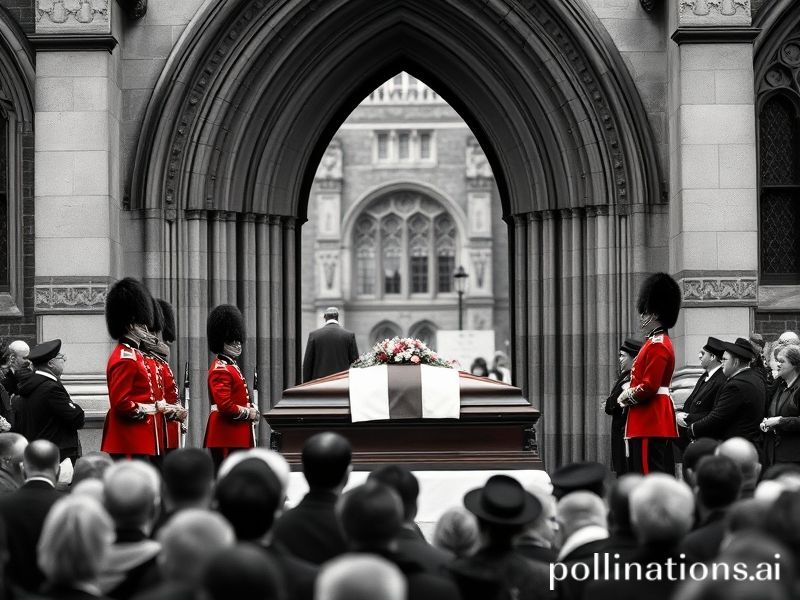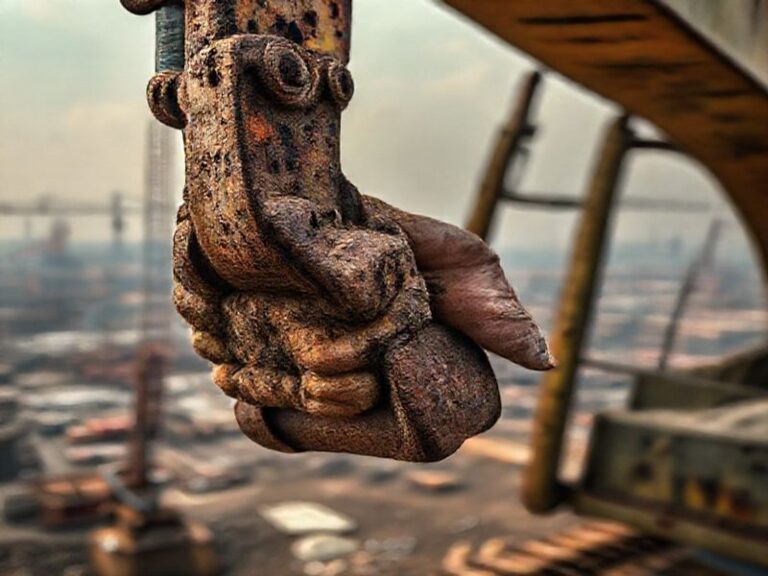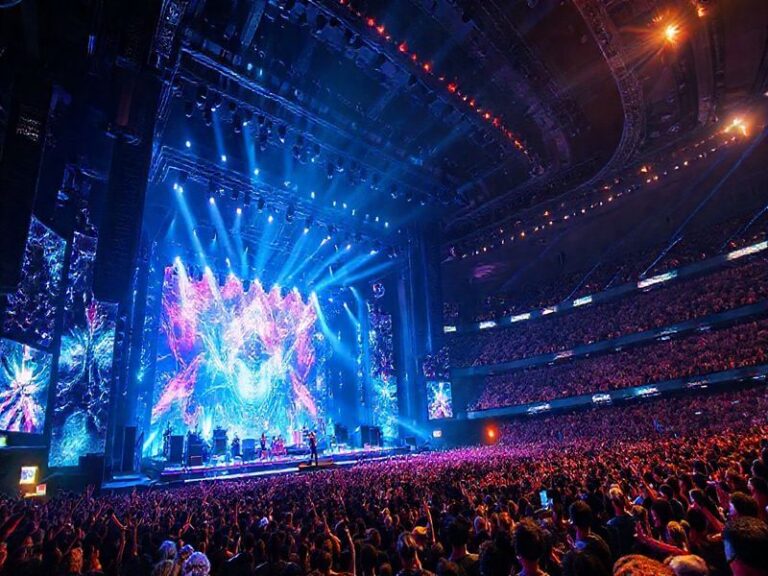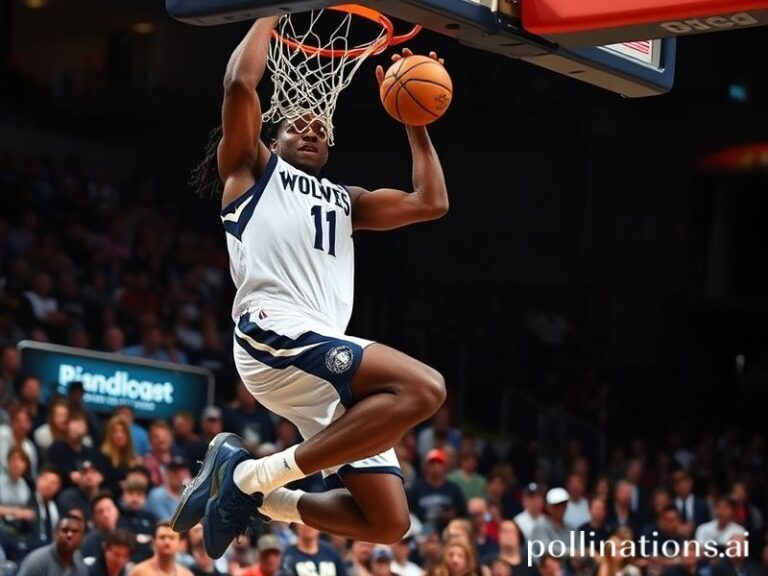The Last Curtsey: How the Duchess of Kent’s Funeral Became the World’s Most Polite Power Struggle
The Last Curtsey: How the Duchess of Kent’s Funeral Became the World’s Most Polite Power Struggle
By our jaded correspondent in London, still recovering from the complimentary sherry
The coffin rolled out of St George’s Chapel on Tuesday with the same understated pomp that Britain perfected during the Blitz—just enough gilt to remind everyone who owns the family silver, but discreet enough to avoid trending on TikTok. Yet beneath the black plumes and the BBC’s whispered commentary, the funeral of Katharine, Duchess of Kent, was less a private grief and more a delicately choreographed advertisement for the soft-power franchise that still calls itself the Commonwealth.
International viewers tuning in for a spot of vicarious pageantry were treated to a masterclass in how to monetize mortality. The cable networks cut live from Kyiv to Canberra, where breakfast hosts mused on the Duchess’s 1976 handshake with Idi Amin—proof, apparently, that constitutional monarchy can outlast both dictators and disco. Over in Washington, political commentators compared the guest list to Davos, only with better hats and fewer subpoenas. Meanwhile, Indian Twitter debated whether the Koh-i-Noor diamond would make a cameo, like a Marvel post-credit scene for imperial nostalgia.
On the streets of Windsor, the queue to file past the catafalque looked suspiciously like a Ryanair boarding line: jostling tourists from Ohio, tearful Anglophiles from Osaka, and one bemused diplomat from Burkina Faso who confessed he’d come only for the free sausage rolls. They all clutched commemorative programs printed on recycled royal-wedding confetti—sustainability, darling—even as the carbon footprint of the visiting dignitaries’ jets could have melted another ice shelf. Still, nothing says “global Britain” like a funeral gift shop accepting yen, euros, and the last dregs of imperial guilt.
Inside the chapel, the seating plan alone was a geopolitical Sudoku. The Saudi cultural attaché found himself wedged between the King of Eswatini and a minor Habsburg who exists solely to confuse republican schoolchildren. Across the nave, EU commissioners practiced their solemn nods, still unsure whether condolences count as a customs declaration post-Brexit. And in the front pew, the American ambassador scrolled discreetly through briefing notes titled “How to Look Regretful When You Can’t Remember Who She Was.”
The sermon, delivered by the Archbishop of Canterbury with the dulcet sorrow of a man billing by the half-hour, praised the Duchess’s “quiet dignity”—code for never giving an interview explosive enough to dent Netflix ratings. It was a reminder that in the attention economy, obscurity is the final aristocratic privilege. Even the eulogy’s anecdotes were diplomatically vague: “She once met Nelson Mandela” is the Anglican version of “thoughts and prayers.”
Yet the real action unfolded on the sidelines. Australia’s new republican prime minister flew in, ostensibly to pay respects, mostly to gauge how many voters still curtsy at taxpayer expense. Ghana’s delegation hinted—ever so politely—that a few more returned artifacts might speed future trade talks. And the Chinese envoy left early, reportedly offended that the Royal Philharmonic refused to play “God Save the King” in the key of Xi Jinping.
By teatime, foreign correspondents were filing copy that fused obituary with obituary-while-u-wait thinkpiece: “What the Duchess’s life tells us about declining Anglican church attendance in sub-Saharan Africa” (The Atlantic), “Five lessons in brand continuity from Windsor, Inc.” (Nikkei Asia), and—inevitably—“Could the corgis be next?” (BuzzFeed). The global takeaway: the monarchy may be a medieval institution propped up by gift-shop revenues, but it still outperforms most democracies at synchronized mourning.
As the hearse pulled away, a lone piper played a lament that sounded suspiciously like “My Way.” Somewhere in the crowd, a small child asked why everyone was sad for someone they’d never met. His mother, clutching a commemorative fridge magnet, replied, “Because it makes us feel part of something bigger, darling.” Out in the parking lot, a discreet plaque announced that the magnet was made in China. The empire, like the Duchess, exits stage left—still impeccably timed, impeccably dressed, and leaving the rest of us to pick up the tab.







